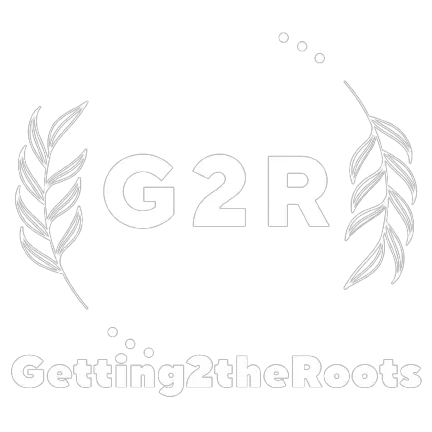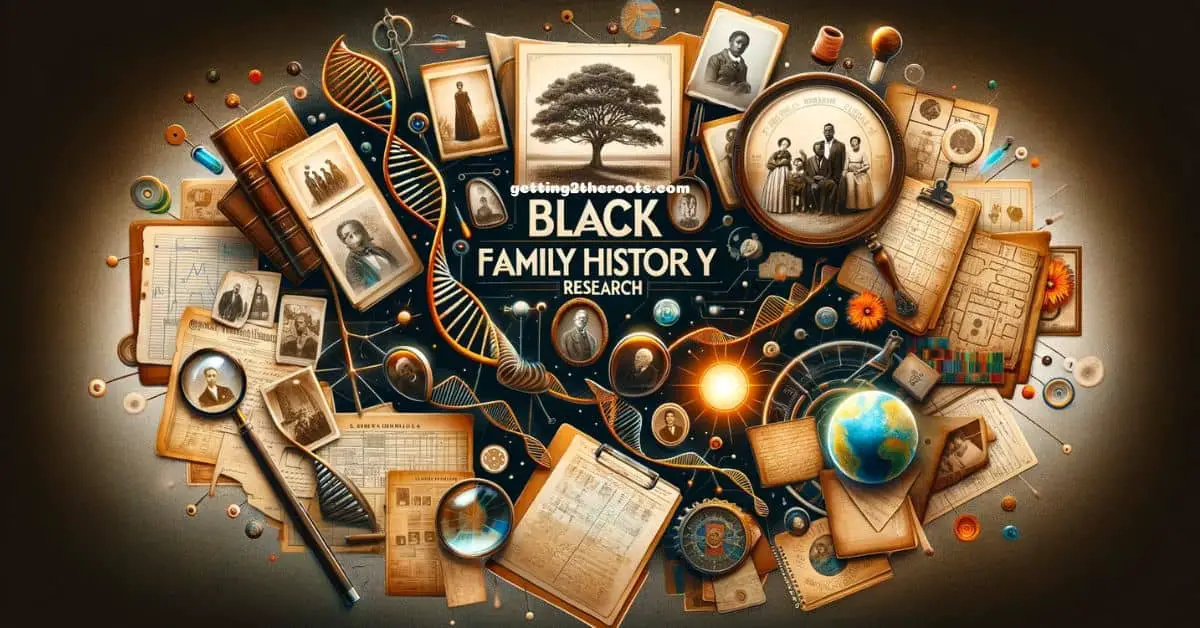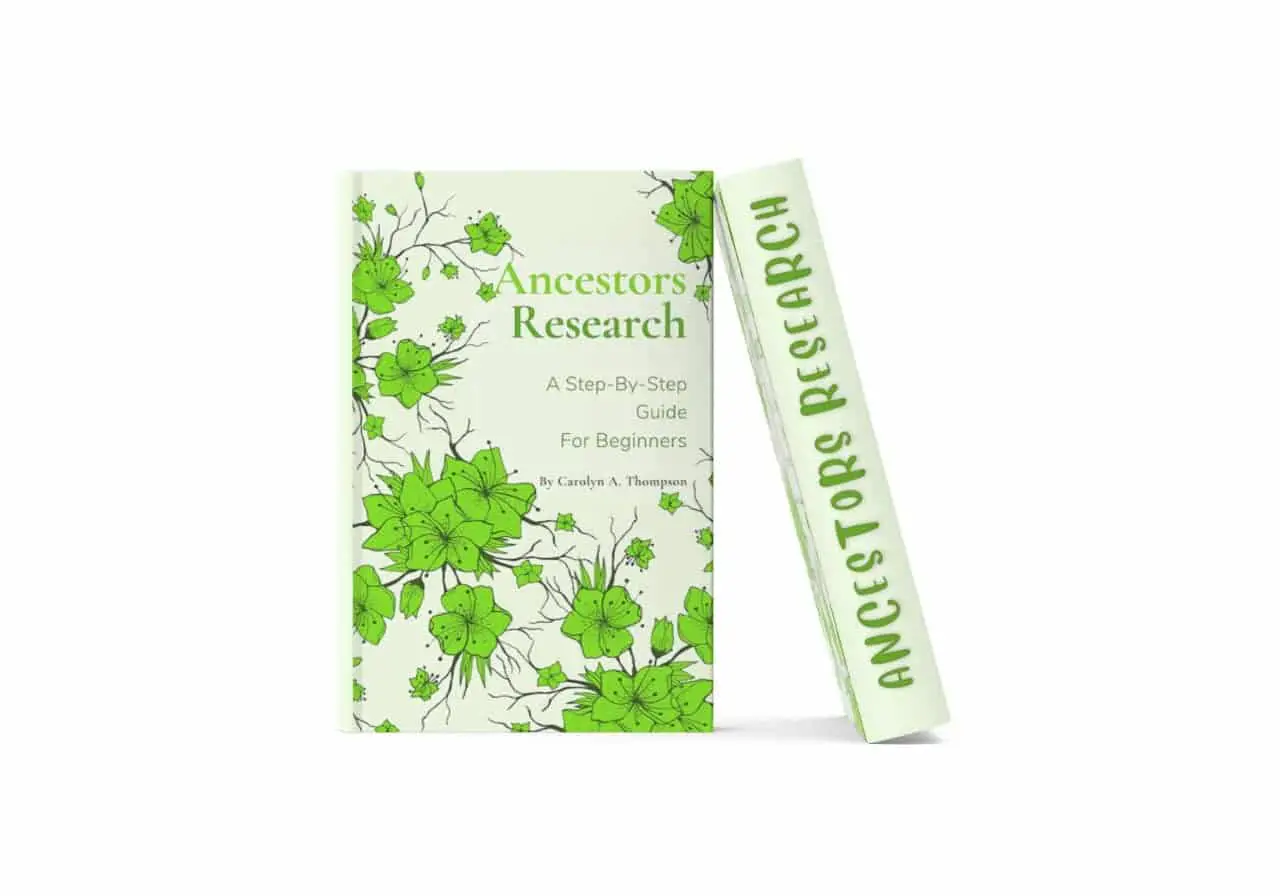Embarking on the journey of Black Family History Research is both a complex and emotionally enriching endeavor.
This pursuit, ripe with discoveries and challenges, fosters profound connections. It’s a path that not only unveils lost stories and unsung heroes but also links us to a history that defines us.
On this journey, every step matters.
- It starts with gathering information from living relatives and home records.
- Delving into the slavery era, utilizing available resources.
- Making the most of DNA testing services.
- Meticulously documenting every detail uncovered.
Understanding our roots goes beyond just names and faces; it’s about deeply comprehending the lives, struggles, and triumphs of our ancestors. This process of discovery is not just informative but incredibly empowering.
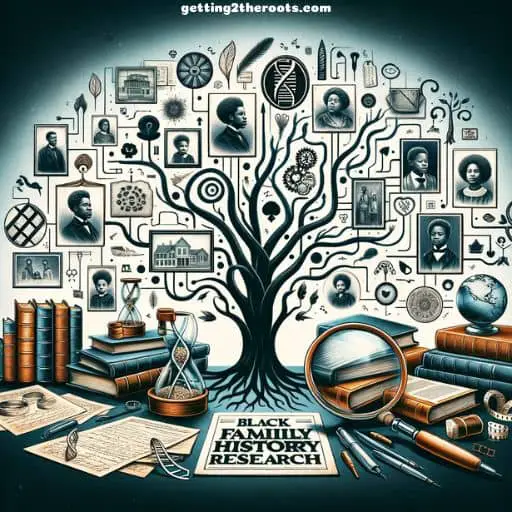
A Crucial Start in Black Family History Research
This article goes beyond mere facts and dates; it’s about forging a deeper connection with our past and enriching our understanding of familial bonds and heritage.
In exploring the stories and legacies of our ancestors through Black Family History Research, we reveal layers of history that form our identity and give us a sense of belonging.
This process connects our present with the past in our family’s story. I encourage you to explore “Ancestral Stories & Legacy,” where I documented the life stories of some of my ancestors, piecing together the various aspects of their lives into cohesive narratives.
The true beauty of uncovering one’s ancestry lies in its power to educate our children about resilience, courage, and generational pride.
It is an enriching process that not only strengthens family bonds but also instills a profound sense of belonging.
- But finding Black ancestors can be harder for several reasons.
- These include historical exclusion and systemic barriers like:
- Limited documentation for enslaved people, Racial bias in record-keeping,
- Legal restrictions made it hard to record Black family histories.
These obstacles can make the journey of discovering one’s lineage more complex. But don’t worry, with:
- Patience,
- Persistence,
- The right information at your disposal,
Here is your starting point:
1. Family Records and Oral Histories
The quest begins at home; your starting point is what you already know. Dive into family records and oral traditions.
They go a long way toward tracing unknown ancestors and understanding family migration patterns.
Ask around, especially the older members of your family. Look also for documents like old letters, diaries, photographs, deeds, and wills.
2. Census Records
Census records are gold mines of information. These documents can offer clues about names, ages, residence, occupation, and family members.
Begin your research with the most recent U.S. population census and then trace your way back through history.
The census records, which started in 1790, began identifying every household member by name and age from 1850 onwards.
Although enslaved people were not identified by name before 1870, these records can still provide invaluable information.
For a detailed overview of what you can find in these census records, refer to our article, “What’s In The Census | 1790 To 1950.”
3. Online Genealogy Databases
Websites like Ancestry.com, MyHeritage, and FamilySearch are treasure troves of information for black family history research.
They offer extensive databases and powerful search tools that allow you to delve into specific names, places, or years, helping you uncover potential links to your family tree.
For a more detailed guide on how to effectively use these websites and discover the best resources they offer, I invite you to read my article, “Unlocking Secrets: Best African American Genealogy Websites.”
Or if you want to build your family tree, read “How to Build Your Family Tree | For Beginners.” These pieces will provide you with insights and tips on navigating these platforms to maximize your research efforts.
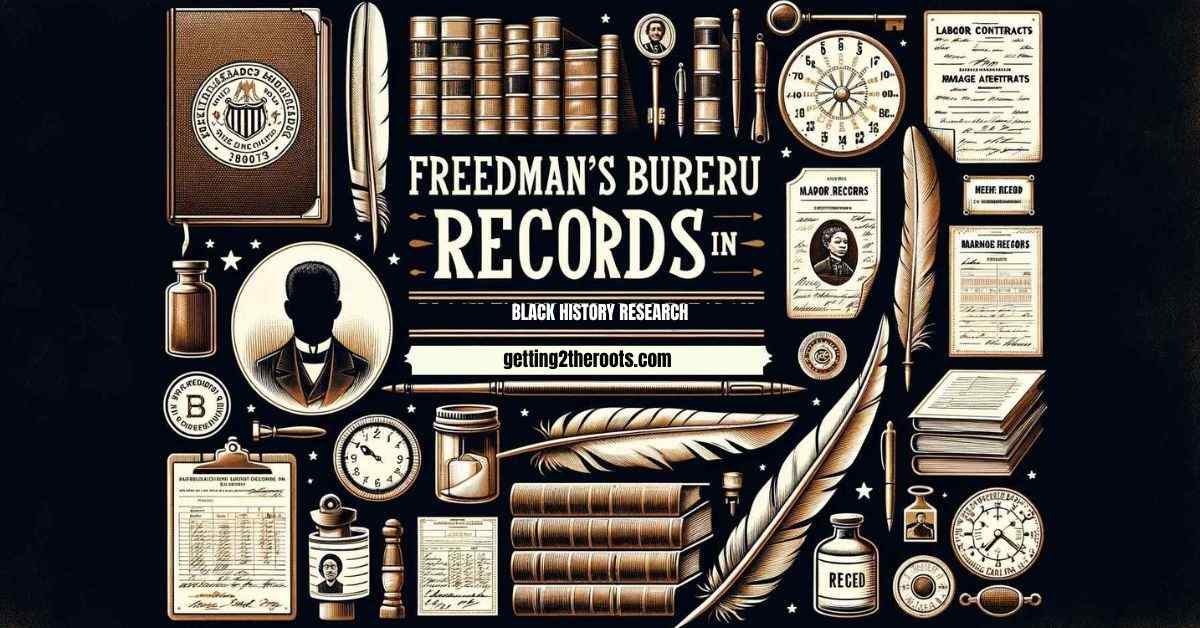
4. Enslavement Records
For African American families whose history dates back to the period of enslavement, multiple records can aid in your search.
Detailed inventories after slave owners’ deaths, bills of sale, and estate settlements can provide clues.
After 1865, Freedman’s Bureau records can be a treasure trove of information, including labor contracts, marriage records, and educational pursuits.
For an in-depth exploration of these records, check out our article “The Value of Freedman’s Bank Records for Genealogy,” a key resource in black family history research.

5. DNA Testing
When conventional research methods encounter limitations, DNA testing services come into play. These tests compare your genetic data with others in their database, potentially revealing distant relatives who share segments of your DNA.
| DNA Testing Company | Specialization/Features |
|---|---|
| AncestryDNA | Detailed family history reports and a large user database |
| MyHeritage DNA | Extensive international database, family tree integration |
| FamilyTreeDNA | Y-DNA and mtDNA tests for paternal and maternal line tracing |
| Living DNA | In-depth ancestry reports with a strong focus on British and Irish roots |
| SelfDecode | Health-focused DNA analysis with ancestry information |
6. Collaboration and Networking
- Joining genealogy clubs or online communities can provide support and guidance.
- Check out the Afro-American Historical and Genealogical Society (AAHGS)
- National Genealogical Society (NGS).
- Their resources, combined with group knowledge, can help overcome obstacles.
Remember, tracing your lineage is a journey, not a destination. The path may seem a bit daunting, but any information, no matter how little, adds a meaningful piece to your family’s incredible story.
While understanding our ancestor’s hardships, we also celebrate their strengths, which ultimately shaped us today.
Happy ancestor hunting! You’re on the road to discovering an enriching part of your family history! Will you join others on this enlightening quest?
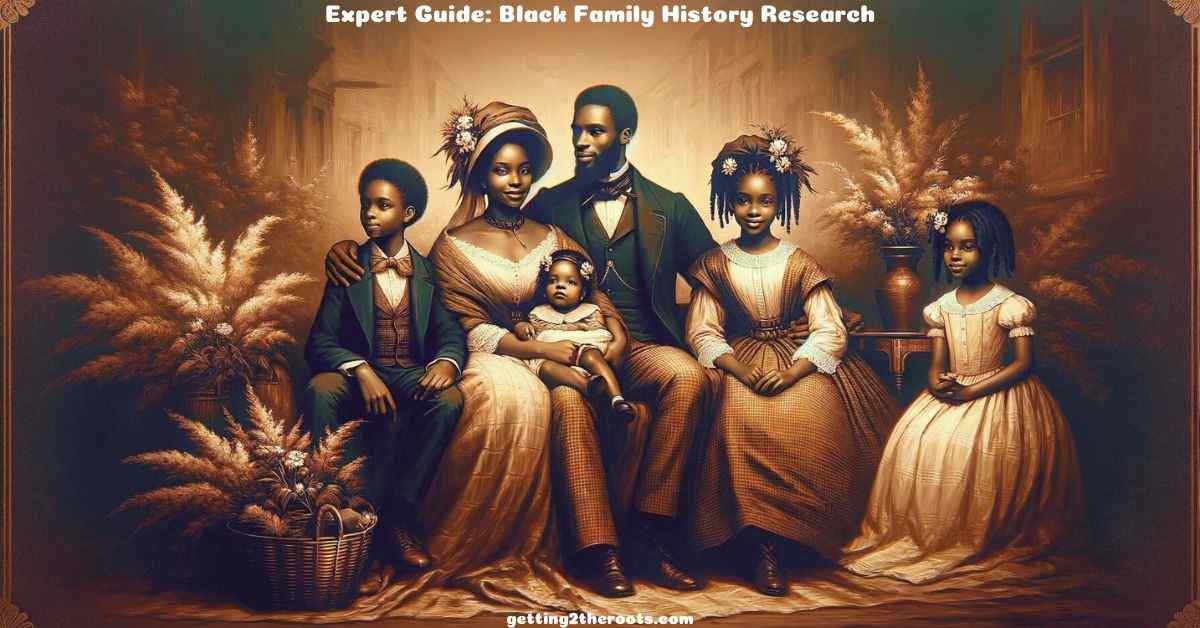
Understanding Slavery Era: Tracing Black Family History
Delving into our family history can be a captivating yet challenging endeavor. It can sometimes feel like a complex puzzle, with each piece typically getting more difficult to place as we move back in time.
This frequently rings true while tracing ancestors back to the slavery era, as records are often scarce, incomplete, or even nonexistent.
Yet, with careful research habits, a dash of perseverance, and the help of other resources, it’s a journey that can lead to a profound look into how our collective past has shaped our present.
Key Records for Post-Slavery Era Lineage
Emancipation records can often offer a glimpse into our family’s backstory. Following the Emancipation Proclamation in 1863, many freed enslaved individuals took on surnames, which were often documented in these records.
Remember, names may change over time as spelling may have evolved or mistakes could have happened during record transcriptions.
However, these documents, if located, can provide an invaluable hint towards identifying specific individuals who marked the beginning of your family’s lineage in the post-slavery era.
One additional, yet equally important, resource is the Freedmen’s Bureau records. Established to aid enslaved people in their transition to freedom.
These documents house a wealth of information, such as labor contracts, correspondence, and marriage registries. These materials could illuminate the paths our ancestors took in their stride toward liberty.
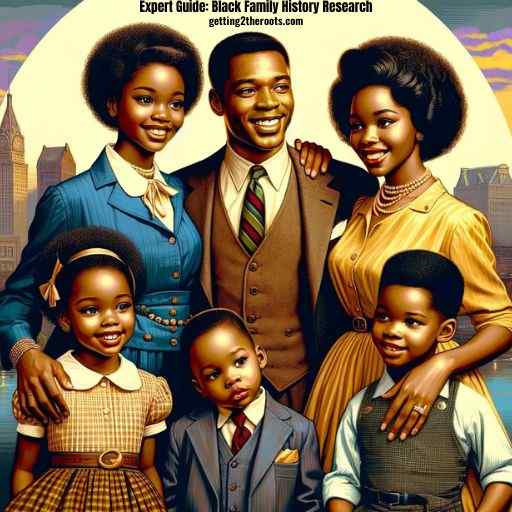
Uncovering Hidden Clues in Historical Records
Court records can also be a trove of knowledge. As difficult as it may be to read, litigation related to slavery was not uncommon, and the valuable information contained could lead back to ancestors during the slavery era.
- Another resource to tap into is community history, especially in the area where you believe your ancestors may have resided.
- Local historical societies or libraries often house leads that get missed in larger federal databases.
- Exploring church records or even local newspaper archives is another tactic that can provide names.
- And significant dates to help paint a fuller picture of the past.
The Journey of Discovery and Connection
Remember, this endeavor is not merely a hunt; it’s a journey. Moments of frustration and confusion are to be expected, but so are moments of revelation and profound connection.
It is a journey that intertwines your narrative with the sweeping saga of history, anchoring your present in the tribulations and triumphs of the past.
Tracing our lineage back to the slavery era may be tricky indeed, but the depths of the understanding it can provide make it a journey well worth taking.
Embrace the quest, enjoy the discoveries, and always remember: every single piece of obtained information breathes life into the rich tapestry of your family’s story.
By pursuing this challenging task, you’re helping ensure that the legacy of their resilience and courage endures for generations to come.
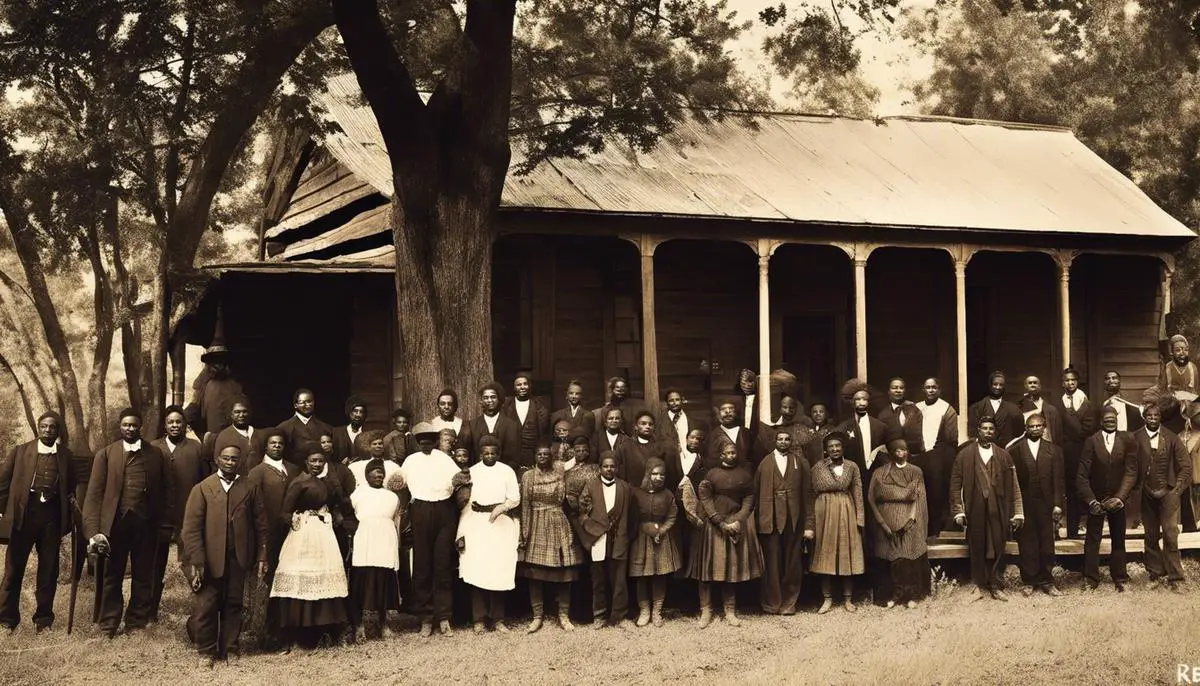
Black Family History: Taking Advantage of Resources
Embarking on a heritage-tracking adventure extends much further than the already-mentioned family records, census records, DNA testing, and so on. Let’s unearth some additional avenues that you can explore in your quest to unravel your familial roots.
Social Media Platforms
In today’s tech-driven society, social media platforms such as Facebook, Pinterest, YouTube, and LinkedIn can prove surprisingly helpful.
Many people share their family histories online or set up groups targeting a particular surname or geographic area.
Remember that social media is also a great tool for networking. Reaching out to distant relatives or potential connections may provide valuable information and can lead to fascinating stories previously unknown.
Public Libraries
Public libraries can serve as exceptional resources for genealogical research. Many libraries host various historical documents, local newspapers, Fold3, and genealogy-related books, granting a wealth of information.
Also, some libraries offer free access to subscription-based online research databases like Ancestry.com and MyHeritage.
Historic and Genealogical Societies
Smaller, more localized historic and genealogical societies are often overlooked. They usually have unique collections specific to their geographic region.
Even if your ancestors didn’t live in the area, they might appear in records kept there. Plus, the society’s well-informed staff could offer useful guidance for your search.
Military Records
Military records are a goldmine of genealogical information.
- They can potentially provide:
- Birth dates.
- Physical descriptions.
- Locations of birth and residence.
- Names of relatives.
- Occupations.
Furthermore, pension records often contain narratives of soldiers’ military service, which can be rich in family details.
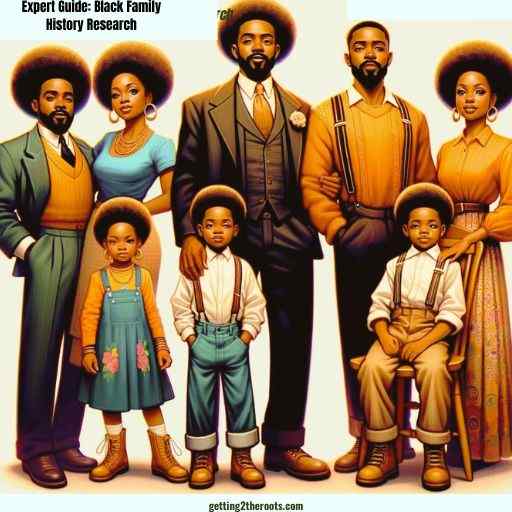
Land Records
Land records, though sometimes challenging to track down, can be rich sources of lineage information.
They often contain valuable details about family relationships, providing thorough transaction records between various family members and neighbors.
Probate Records and Wills
- Probate Records and Wills: Vital for uncovering names, relationships, and property ownership details.
- Revealing Personal Details: Offer insights into an ancestor’s daily life, adding a personal dimension to your family tree.
- Property Ownership: This can indicate family wealth, economic status, and historical property locations.
- Relationship Clues: Help in identifying family connections, both immediate and extended.
- Daily Life Insights: Shed light on the personal aspects of ancestors’ lives, lifestyles, and choices.
Immigration and Naturalization Records
These records can provide a plethora of information about ancestors who immigrated to the USA—their native country, when they emigrated, the ship they arrived on, who they traveled with, and more.
Educational Records
- Educational records of ancestors might be challenging to obtain due to privacy laws.
- They can provide insights into an ancestor’s life.
- High school and college yearbooks, which often document major and extracurricular activities.
Health Records
Family health histories can reveal genetic conditions and diseases that are prevalent in your family, along with your ancestry. This includes medical records, obituaries, death certificates, and even gravestone inscriptions.
Unraveling one’s lineage is often an intricate, puzzling, and emotional journey. It’s important to remember that each discovery, no matter how small, is another piece added to the vast puzzle of your family’s history.
Not only will these findings fortify your understanding of family traditions and values, but they will also vitally lay down the historical blueprint for future generations to cherish and expand upon in their own time.
Keep turning over those stones in your quest for knowledge; you never know what treasures you might uncover in the process!
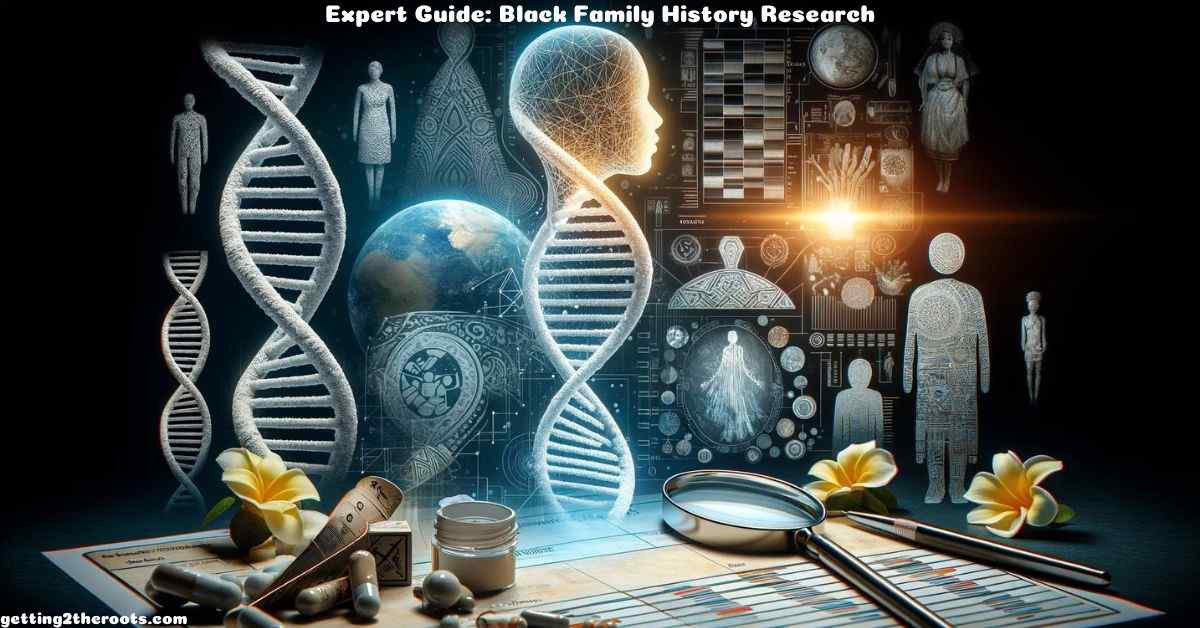
Using DNA Testing Services in Black Family History Research
DNA testing services offer a unique and deeply personal perspective on genealogical research. They extend beyond documented records, guiding us on a journey to understand our genetic makeup and heritage.
These tests are particularly effective in black family history research, offering insights where traditional documentation may be lacking.
Advantages of Mitochondrial DNA (mtDNA) Testing
Mitochondrial DNA (mtDNA) testing, which focuses on maternal lineage, can trace a direct line from mother to daughter over many generations.
This method is advantageous for tracing black family history, especially when conventional records are sparse or missing.
Discover the journey of tracing female ancestors in “Pathways To The Past | African American Female Ancestors,” especially useful when traditional records are limited.
Discovering Paternal Roots with Y-DNA Testing
Y-DNA testing, which focuses on the paternal lineage, effectively traces the direct male ancestral line from father to son over numerous generations.
This approach is especially useful in Black Family History Research, especially in cases where conventional records are scarce or unavailable.
I invite you to read “Secrets of Paternal Lineage DNA.” This article provides comprehensive information on how Y-DNA testing can unlock the history of your male ancestors.
Balancing DNA Testing with Traditional Research
It’s important to manage expectations regarding the accuracy of DNA tests. While they don’t provide a complete ancestral picture, they can point you in the right direction.
Especially when used alongside traditional research methods. In cases where historical documentation is limited, such as in black family history research, DNA testing becomes an essential tool in uncovering obscured histories.
Breaking Through Historical Barriers with DNA Testing
The complex history of the transatlantic slave trade, which often erased traditional names and obscured kinships, makes tracing Black family heritage a unique challenge.
DNA testing services can break through these historical barriers, offering insights into African lineage and helping to reclaim heritage.
Connecting with Distant Relatives Through DNA Testing
DNA testing can link you with distant relatives who may share vital pieces of your family history. These genetic cousins can provide family stories, photos, and documentation, broadening the scope of your research in Black Family History.
The Role of DNA Testing in Black Family History Research
DNA testing services like AncestryDNA or MyHeritage can offer a broad overview of your ethnic mix, sometimes pinpointing specific African regions of origin.
While tracing exact individuals might be challenging, these tests provide valuable insights into broader migratory patterns and the historical experiences of your ancestors.
Embracing the Journey of Ancestral Discovery
In our quest to trace our Black family history, let’s embrace the struggles and breakthroughs that come with uncovering our lineage.
Our ancestry is a testament to resilience and strength, a tangible connection to a past that shapes our present and future. Each discovery brings us closer to understanding the uniqueness of our existence.
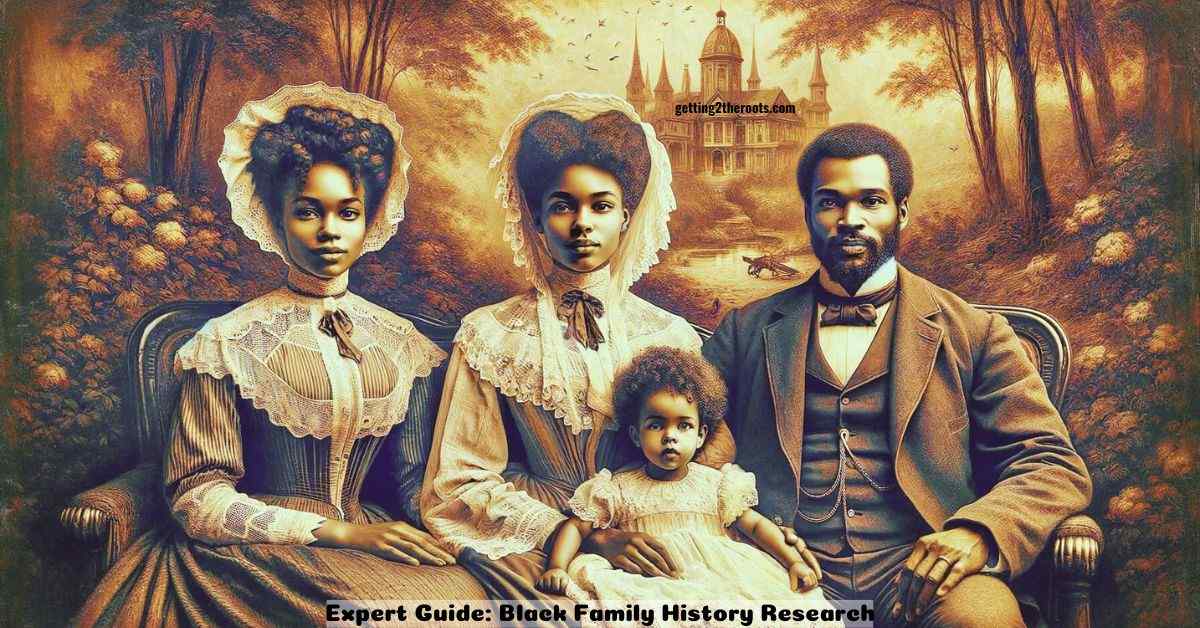
Documenting and Preserving Black Family History
Exploring Overlooked Resources and Local Histories
Genealogy is not just a scientific practice but also an enriching journey of self-discovery that aids in understanding who we are and where we came from.
While some aspects of ancestral research may have been covered earlier, there are a myriad of methods to document and preserve the details of your ancestral search.
As we dig deeper, it’s crucial not to overlook the use of overlooked resources, multimedia documentation, and online tools to amplify our efforts.
An often overlooked resource in genealogical searches is local histories. Local histories often offer valuable insights into your ancestors’ lives:
- Including their communities.
- Their professions, and even the challenges they faced.
- Local history books, available in libraries or historical societies, can provide a wealth of useful information.
Don’t discount the power of local folklore either – these are often peppered with truths and can fill in the gaps that official records might have left out.
Utilizing Multimedia and Organizing Data
Once a significant amount of information has been gathered, it’s vital to organize this data and create a suitable method of preserving it. Utilizing a multimedia approach can be a remarkable strategy.
Beguiling ancestral stories can be captured in audio or video formats as storytelling sessions involving the elderly members of the family. This can be a remarkable way to preserve family history for future generations.
Photographs, too, represent a silent yet eloquent testimony of the past. They encapsulate precious snippets of your ancestors’ lives and consequently become invaluable genealogical resources.
Old family photos, if preserved properly, can become a treasure trove of information. Just remember to annotate them accurately, noting down the names, dates, locations, or any relevant details linked to the image.
Embracing Digital Tools and Physical Archival Storage
As we encounter the digital age, the internet suggests itself as a brilliant tool for documentation and preservation.
Online platforms like blogs or websites dedicated to your family’s history could be a rewarding process.
This creates an accessible digital repository where information can be shared and updated easily within your family and the wider community.
Online forums and genealogy-focused social networks also flourish nowadays.
They provide a virtual space for like-minded ancestry sleuths to gather, share, discuss, and aid each other in their respective quests.
It’s also worthwhile to utilize the potential of commercially available genealogy software.
They help not only in organizing your findings but also in generating charts and reports, thus presenting a consolidated view of your ancestral tree extending over centuries.
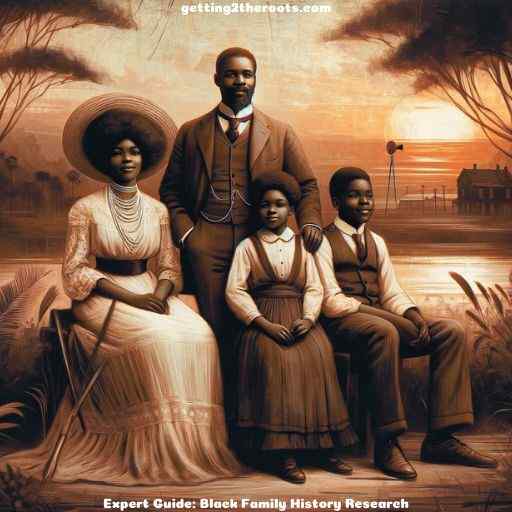
Recording Personal Histories and Leaving a Legacy
Furthermore, keep in mind the significance of physical archival storage. Invest in archival-quality document protectors, photo albums, and acid-free boxes to protect valuable artifacts, correspondence, and documentation.
Lastly, but crucially, consider recording your own life and experiences. You are the first link in the chain for future generations and your experiences, like your ancestors’, are valuable.
Consider writing a journal, filming videos, or even creating scrapbooks of notable moments. Unraveling the threads that tie us to our past can often be a complicated process, but an incredibly rewarding one.
As you journey through the paths your ancestors once trod, remember that your discoveries now pave the way for future generations to know their roots, too. Happy hunting!
The Impact of Genealogical Research on Identity and Unity
This significant journey of tracing Black Family History is so much more than a mere chronicle of lineage.
It is an amalgamation of personal histories, collective memories, and the unwavering resilience of the black family who laid the foundations for generations to come.
Your journey can breathe life into forgotten stories and present you with an unprecedented sense of identity and belonging.
So, as you persevere with this incredibly fulfilling investigation, remember that the fruits of genealogical research are far-reaching.
It essentially casts light on your shared history, fostering a sense of unity and connectivity and securing an illuminating inheritance for future generations.

Conclusion: Embracing Black Family History Research
In our journey through the “Expert Guide: Black Family History Research,” we’ve explored various facets of tracing and preserving our Black Family History.
From the challenges of delving into slavery-era records to the modern techniques of DNA testing, this guide has provided insights into the rich tapestry of Black family history.
As we continue to unearth our past, remember that each discovery is a step towards a deeper understanding of our identity and a testament to the resilience of those who came before us.
Embrace this journey of discovery, for it connects us to our roots and strengthens the bond with our ancestors.
Frequently Asked Questions (FAQs): Insights into Black Family History Research
- How effective is DNA testing in Black Family History Research? DNA testing offers significant insights, especially when traditional documentation is scarce. It’s effective in identifying ethnic origins and connecting with distant relatives, although it may not provide complete ancestral lineage details.
- What are some key resources for tracing African American ancestry? Key resources include census records, emancipation and Freedmen’s Bureau records, local histories, and court documents. Each offers unique insights into the lives of African American ancestors.
- How can I preserve my family history for future generations? Preserving family history can be done through multimedia documentation, like audio/video recordings, organizing photographs, using online platforms for digital repositories, and maintaining physical archival storage.
- What challenges might I face in tracing my African American ancestry? Challenges include gaps in historical records due to slavery, changes in names and spellings over time, and the general scarcity of records in the slavery era. Using a combination of resources can help overcome these obstacles.
- Can I connect with others researching their African American heritage? Yes, online forums and social networks focused on genealogy are excellent places to connect with others on similar quests. Sharing stories, tips, and resources can be immensely helpful in your research journey.
